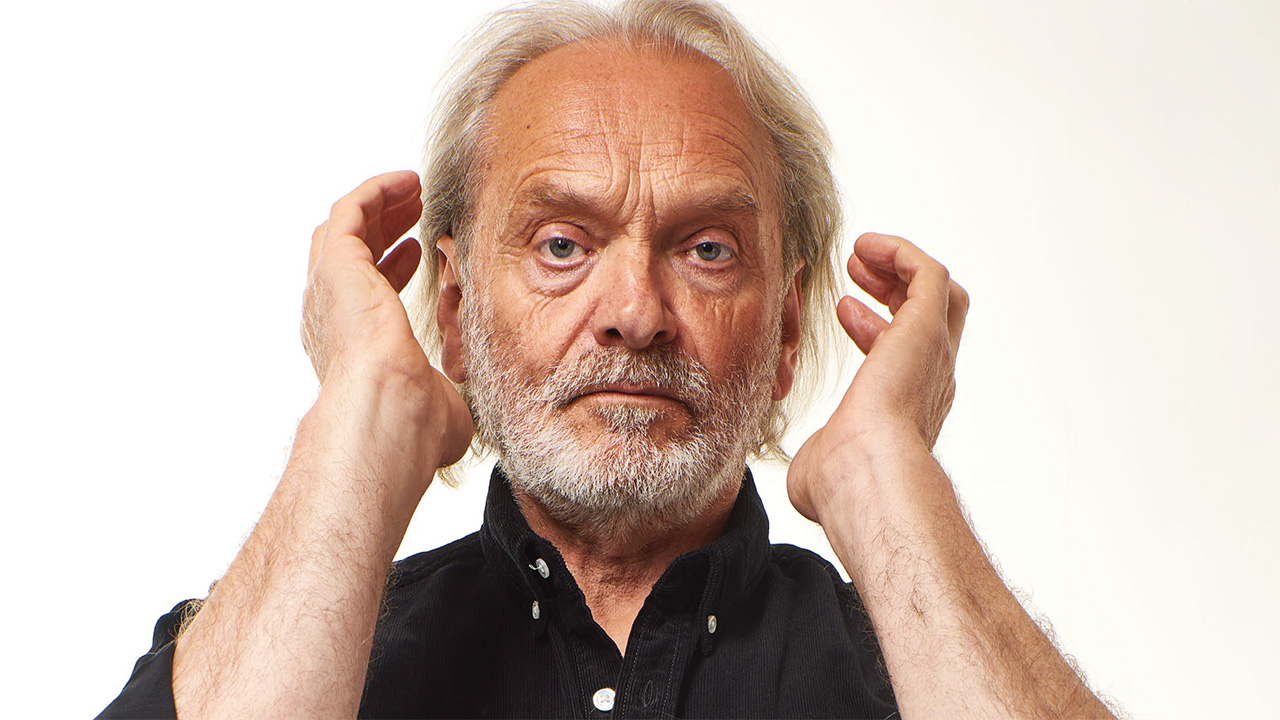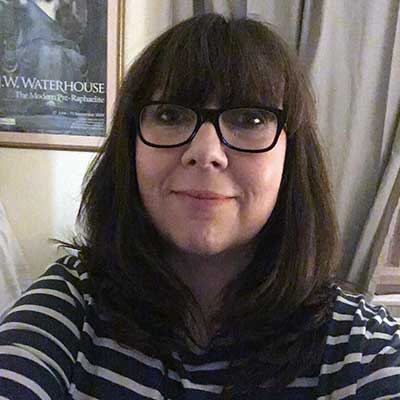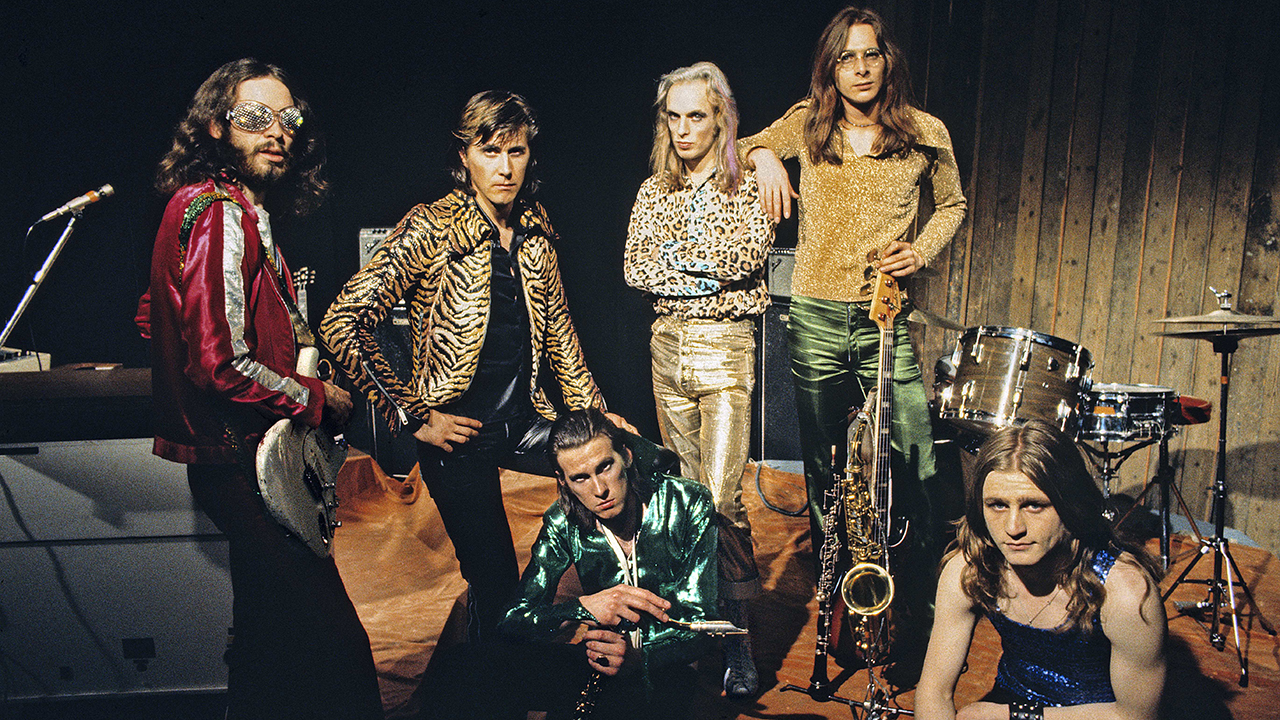“There was a sense that the record was the definitive music, and you were to reproduce that night after night. It became boring”: Wang Chung’s Jack Hues reinvented himself by revisiting prog influences Robert Wyatt, Radiohead and Talk Talk
Decades after playing to 80,000 people a night with Wang Chung, the Canterbury artist went wild on Epigonal Quark, with help from Syd Arthur and others

In 2022 Jack Hues And The Quartet released Epigonal Quark, an album of five covers and one original piece. Featuring songs by Robert Wyatt, Radiohead and Talk Talk, it was another step into prog territory world for the Wang Chung vocalist-guitarist.
Canterbury artist Jack Hues has returned with six tracks shaped by the intensity of live performance and band chemistry, featuring material by Robert Wyatt, Radiohead, Talk Talk and Soft Machine alongside a brilliantly titled instrumental original, Non-Locality In A Sea Of Electrons.
It’s 13 years since the guitarist – also of 80s new wavers Wang Chung – joined forces with members of Syd Arthur for “one night only,” and almost four years since he officially emerged onto the prog-jazz scene thanks to the support of Syd Arthur co-founder Joel Magill (who also put Hues’ first EP out through his Dawn Chorus label).
Backed by other members of Magill’s band and avant-jazzers Led Bib as The Quartet, the collective debuted with a dazzling extended take on Beck’s Nobody’s Fault But My Own. The track is revisited in the limited-edition, vinyl-only Epigonal Quark.
What’s the story behind Epigonal Quark?
I came across the phrase and thought, “God, it really sounds like a Canterbury album!” I was listening to Record Review on BBC Radio 3 and this guy was talking about how he’d been asked to do something with a piece of music by Wagner that had been found in a cupboard somewhere.
He tried to write a set of variations on it, but it was dismissed as an “epigonal quark” by the people who ran the thing – which basically means just the most fleeting and flimsy thing you could imagine. I thought it was a great name for a live album; it sounded, to me, like Camembert Electrique.
Sign up below to get the latest from Prog, plus exclusive special offers, direct to your inbox!

How does this release relate to your live-in-the-studio EP from 2019?
That record was named after, and featured, Beck’s Nobody’s Fault But My Own and we did a little tour – playing Bristol, London and Canterbury – to promote it. So we were doing that track live and then I got some other tunes together, ones that I was fascinated by at the time.
Your song choices are really broad – how did you settle on the selection?
I’m not certain! I was listening to Talk Talk’s Laughing Stock a lot and bought it on vinyl. A few days later, Mark Hollis passed away, which seemed significant. I thought I’d really love to do a tribute to him. I loved Myrrhman, so I figured out a version, working with my Quartet – well, septet in this case. It’s very loose, and people find their way through it... and that’s what we’ve done with each of the tracks.
There’s a poignant mood in Talk Talk’s songs; does that chime with you?
Very much. Their last three albums are masterpieces; they show what you can do when you’re in an 80s band and you run out of road. They seem inspired by Miles Davis’ work from the late 60s, where you assembled the musicians, pressed ‘record’ and you’d create the record out of what you got.
What does Robert Wyatt’s Sea Song mean to you?
I’ve always loved it. I wanted to sing a couple of songs – previously The Quartet’s work has been instrumental. I find Robert inspiring. He was in a big, successful band, then forged a career as a solo artist without compromising in any way.
But I was also inspired by the Unthank sisters’ version, with piano and very pure voices. They saw the melody in a different way – it gives you a choice of whether you go sharp or flat on some of the notes, and they chose sharp. It sounded great. I sort of mimic their version.
Why choose Radiohead’s Weird Fishes/Arpeggi?
My version of jazz is much closer to Radiohead than Thelonious Monk. I’m a huge fan. They worked with John Leckie, and the story is that they got tired of him and didn’t like Creep. I’ve been through that myself; being in a young band where the producer might be working to their own vision, which is different to yours, and the results are a disappointment.
And finally, Soft Machine’s Facelift. How do you go about approaching that?
I had sheet music of it – Hugh Hopper is from around here, and his brother Brian gave it to me. So we had all the notes in front of us, and a sketch of how it should be from us playing it live. Our version is a mixture of structure and freedom. It’s a great tune to improvise on.
I see playing live as exploratory; it should be different each time… you connect with the audience in a slightly different way
There’s one Jack Hues composition, Non-Locality In A Sea Of Electrons. It’s quite full-on.
My solo albums are very song-based and sometimes I get ideas that don’t fit into that. The piece is around this ‘ding, ding, ding’ motif, playing a ride cymbal with every beat the same weight. That set the tempo. There’s a crazy 70s Miles Davis track called Black Satin that’s got a feel to it that I was really into, and it just kind of came together.
Both of our drummers get a solo – one of the exciting things about this band is playing with Josh Magill, a proper rock drummer, and Mark Holub, the most filigree trip-jazz drummer I’ve ever worked with.
Why is live music so important to you?
In the 80s, in Wang Chung, I found playing live a real struggle. We did some support tours, one with The Cars, one with Tina Turner. They were big arenas, 80,000 people a night. How can you not enjoy that experience?
And I did – but there was the sense that the record was the definitive version of the music, and you were attempting to reproduce that night after night. It became a bit boring. Now I see playing live as exploratory; it should be different each time.
You’ve just toured with Wang Chung in the US. Were you able to throw a prog jam or mad time signature in?
Oh yes! We’d play To Live And Die In LA very differently from the record. There’s a place for the keyboard player, Dave Schultz, to do a solo and to stretch it out.
When you do that, you connect with the audience in a slightly different way, because they start travelling with you on the journey rather than just recognising the hit. Dave’s into Herbie Hancock – we decided being more Herbie was the way to go!
Jo is a journalist, podcaster, event host and music industry lecturer who joined Kerrang! in 1999 and then the dark side – Prog – a decade later as Deputy Editor. Jo's had tea with Robert Fripp, touched Ian Anderson's favourite flute (!) and asked Suzi Quatro what one wears under a leather catsuit. Jo is now Associate Editor of Prog, and a regular contributor to Classic Rock. She continues to spread the experimental and psychedelic music-based word amid unsuspecting students at BIMM Institute London and can be occasionally heard polluting the BBC Radio airwaves as a pop and rock pundit. Steven Wilson still owes her £3, which he borrowed to pay for parking before a King Crimson show in Aylesbury.
You must confirm your public display name before commenting
Please logout and then login again, you will then be prompted to enter your display name.



